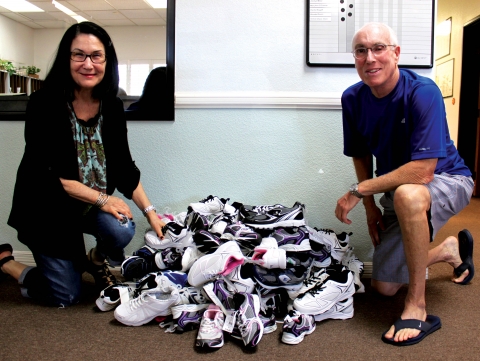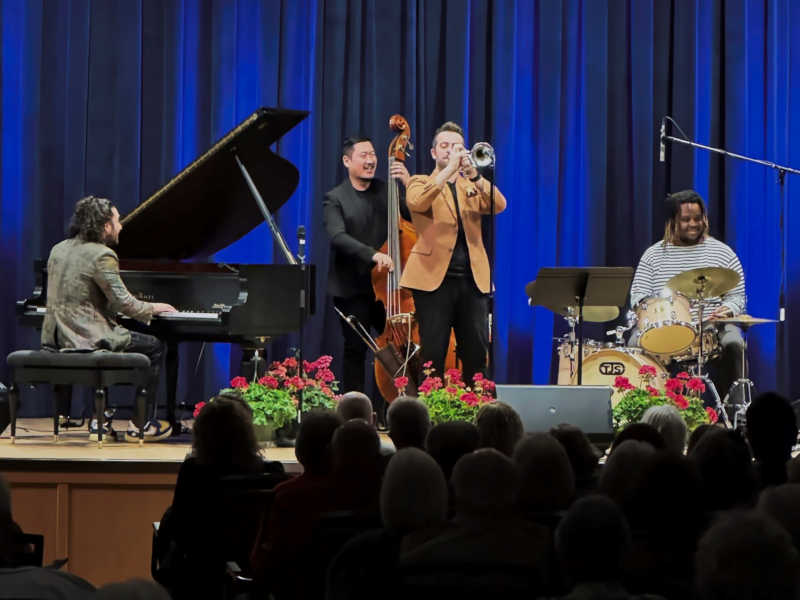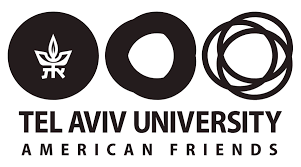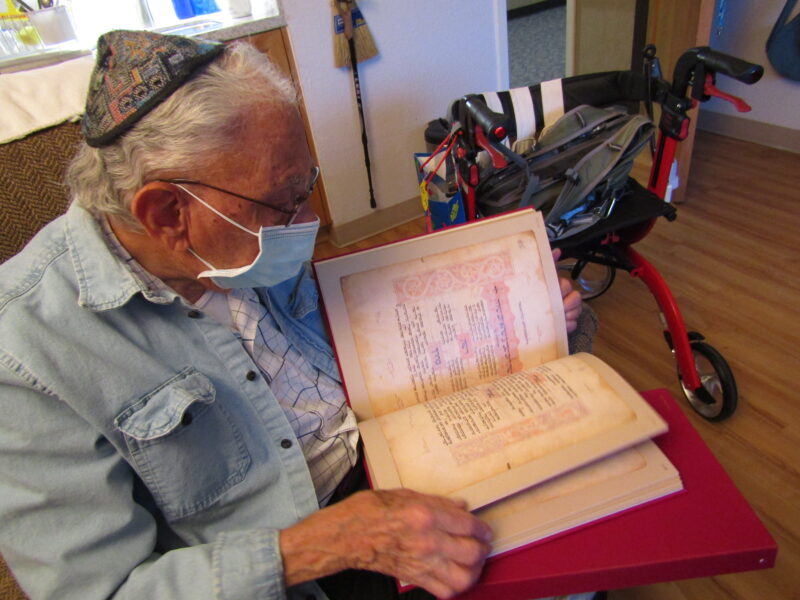When you’re a kid, school can be a bit of a challenge. Whether it’s dealing with bullies or just making sure you fit in, there are all sorts of gauntlets a child has to contend with just to make it through the day. But what if you were missing something all the other kids had, and there was nothing you could do about it? What if you didn’t own a pair of shoes?
It seems so simple, but lots of kids go to school every day without a pair of shoes. Why? Multiple reasons really, but many times it just comes down to money, or a lack thereof. And it doesn’t matter where their school is located, because it’s just as likely to happen in Scottsdale as it is in Kingman. This isn’t an isolated problem.
Sharon Levine currently lives in the Phoenix area, but prior to 2006 she and her husband, Stewart lived in Chicago. Their home was in Highland Park, a pretty nice suburb of the Windy City, however the local school system had quite a mix of children from both affluent and poor areas.
Sharon saw this firsthand when she dropped her own kids off at school every morning. “The kids in our area would come to school all dressed up and they had the right boots and winter coats and everything else, and my husband and I would see these other children coming to the same school our kids did, but they came in sweatshirts,” she explains. “Chicago winters are brutal, they’re absolutely brutal. And we’d see such a disparity in the haves and the have-nots, and we hated it. So we donated a bunch of boots to the school just because we thought that was the right thing to do.”
They soon learned that this problem wasn’t just limited to Highland Park, it was actually a national problem. That’s when they discovered Shoes That Fit, an organization based out of Claremont, Calif., that puts 100 percent of all community donations directly to school children. Sharon and Stewart decided to start a chapter in their area, and dedicated it to the memories of their mothers, Sylvia and Bee, by naming it Sylbee. When they moved to the Phoenix area in 2006, they opened another chapter, this one named Fate Group in honor of their fathers, Frank and Nate. “One thing kind of led to another, it kind of grew,” Sharon says.
One of the keys to their success in the area has come from their faith. “When we joined our synagogue, Temple Solel, a bunch of years ago, we joined the social action committee, and we wanted a project to kind of bring together area congregations and organizations,” Sharon says. “We wanted them to participate in something that wouldn’t be controversial, that everybody would agree on.”
This group effort then made its way to other congregations located all across the valley, and today it’s known as Caring by Pairing. Each year the Levines send out email blasts and talk to the media about their goal, trying to raise awareness in the process. Sharon says, “Since starting the project in the fall of 2010 … we’ve donated almost 700 pairs of shoes — 519 pairs, and this year so far we have 95 pairs.”
Let’s address those shoes for a minute, because Caring by Pairing isn’t just picking up used sneakers from the local Salvation Army. “Well, our organization has a little saying that we made up, and we try to tell people ‘we’re not about brand names, we’re about sturdy and stylish, not expensive and trendy.’” That means they go out and find a quality pair of athletic shoes that will last the wearer a long time, and not just give out when the latest trend goes awry. “It could be from a discount house, it could be from Wal-Mart, Payless, whatever, it doesn’t matter,” Sharon explains. “As long as they’re brand-new, sturdy and stylish. That’s the main thing.”
But how do they find the kids who need the most help? One option is the Web. Levine will go to specific Web sites that give the demographics of the children who attend school in a specific district. “If there’s a high free-lunch population, or children that are eligible for free lunch, we know that’s a good place to give shoes. There’s going to be a lot of need in that school.” These schools could be anywhere, too. Although stereotypes might say that more affluent areas such as Scottsdale or Paradise Valley wouldn’t need the shoes, it turns out that they too have free-lunch programs for kids who are bused in from out of the district. “Our mantra is, ‘poverty is in our own backyard.’ You never know.”
Getting the shoes to the children does take time, but sometimes it’s about having shoes on hand before someone needs them. Today, there are two fully stocked “shoe closets” in the Paradise Valley School District, named Frankie’s Closet and Max’s Closet. They’re designed to allow school nurses, social workers or others to have shoes on hand immediately, whenever a child should find themselves in need. If a teacher wants to send a student home because of a lack of footwear, they can now go to one of these closets and pull a pair out right away. It’s convenient, and essential for the kids.
What does the future hold for Caring by Pairing, and how much broader can the operation become? “ … As big as it can grow,” Sharon says. “I think there’s something like 55 valley congregations, Jewish congregations — synagogues and organizations. Wouldn’t I love for 60 of them to participate? But I’m a realist, that’s not gonna happen. So, any amount of congregations that want to participate, let them do it, that would be wonderful.”
No matter how the organization scales out, Sharon wants to be sure people understand the mission. “It shares the notion that the smallest act or gift of kindness can just make such a difference in a child,” she says. Because although shoes are something most of us take for granted, for a kid who’s gone without them, getting a new pair can change his or her world.






